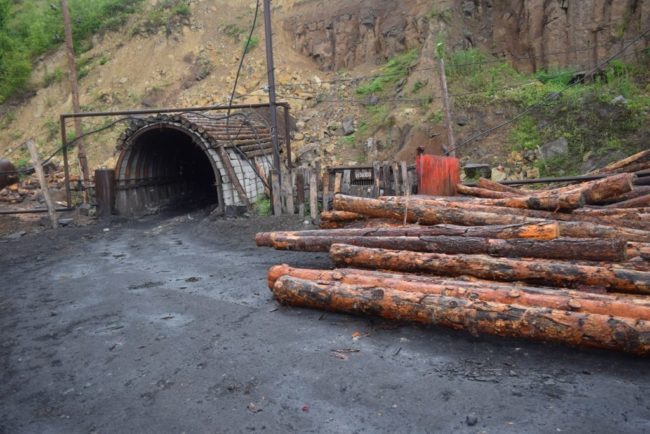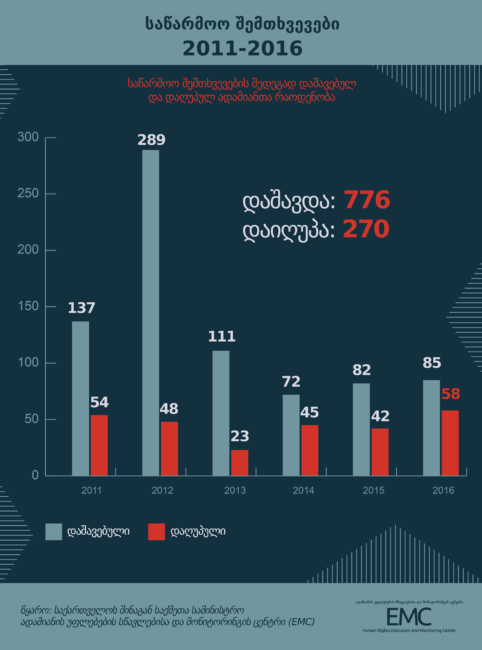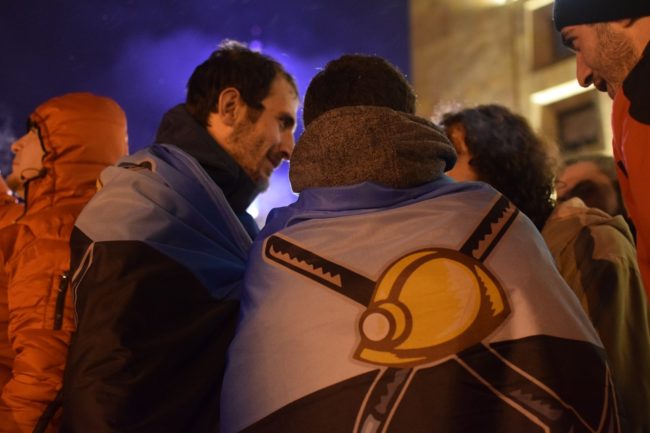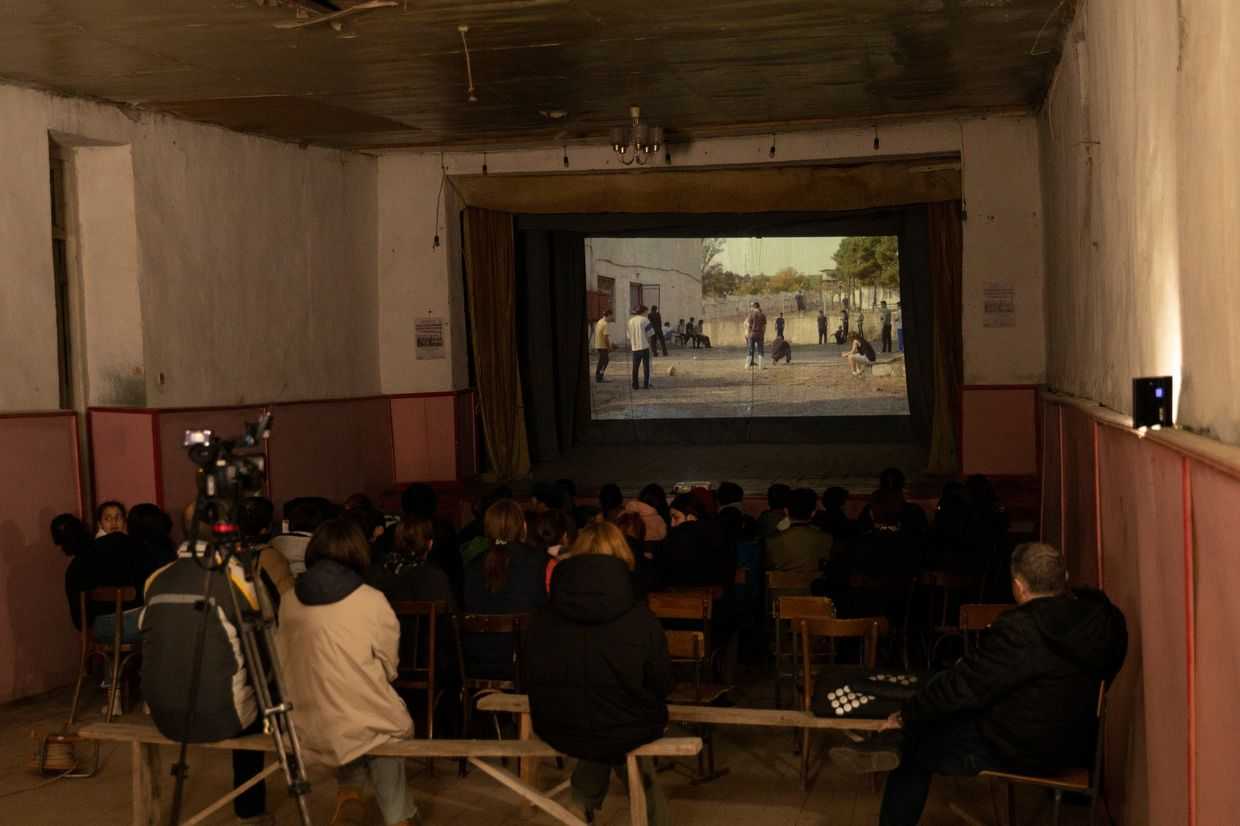

 The high number of fatal occupational accidents in Georgia shows how dysfunctional labour inspection in the country is, as it fails to address alleged violations of safety rules on the labour market, non government organisations claim. While private companies rely on the ‘invisible hand’ and hope that the ‘market will regulate itself’, rights’ groups claim that workplace inspections need reform, which could help in preventing fatal accidents and improving workers’ conditions.
The high number of fatal occupational accidents in Georgia shows how dysfunctional labour inspection in the country is, as it fails to address alleged violations of safety rules on the labour market, non government organisations claim. While private companies rely on the ‘invisible hand’ and hope that the ‘market will regulate itself’, rights’ groups claim that workplace inspections need reform, which could help in preventing fatal accidents and improving workers’ conditions.
High number of fatalities
Nodar Katamadze, a 63-year-old man from the seaside town of Kobuleti in Western Georgia, started working at a construction site in the port city of Batumi in mid-March. Katamadze, along with his son, were working for a construction firm named Lamini-G, which was hired by DS Group — the owner of the construction.
Nodar died on 21 March after falling down from what workers call a ‘balka’ — a wooden plank used to construct a pillar on which workers stand while working.
Later that day, local media outlet Batumelebi quoted another worker at the site as saying that safety rules were not properly ensured by the construction company. Lamini-G has denied the claim, and says that it’s the workers who do not adhere to the rules.
Similar accidents occurred in Tbilisi’s Vake district on 15 and 27 March. An investigation is ongoing for violations of health and safety rules for every single case.
There are no official statistics on the number of fatal workplace accidents so far in 2017, but data from the Ministry of Internal Affairs shows that 58 people died and 85 were seriously injured as a result of occupational accidents in 2016. Since the ministry started producing statistics in 2011, 270 workers have died and 776 were injured.

It’s not only construction works
Several violations of labour rights, including fatal ones, have been reported from various industrial towns — Chiatura, Zestafoni, Tkibuli, Rustavi, etc.
In February 2016, local media outlet Netgazeti broke the story of Tkibuli miners who were routinely locked in the mines and forced to work in harsh conditions. ‘As we enter the shaft, they lock the door with a padlock’, miners said. The case was followed by weeks of strikes and protests, which ended after only a 7% rise in salaries.
The beginning of 2017 saw widespread protests from workers in several industries, urging the authorities to take steps to improve workers’ rights.
[Read on OC Media: when the state invests in labour exploitation]
A 160-page paper published by local rights group the Human Rights Education and Monitoring Centre (EMC) in January 2017 catalogues several issues that workers from different sectors face — unhealthy working environments, insufficient ventilation or insulation, contact with hazardous substances, etc.
The high number of fatalities and injuries from occupational accidents and alleged abuses of labour rights has alarmed a number of civil society organisations, who say that it is necessary to create an effective labour inspection mechanism to prevent them.
Labour code and labour inspection mechanism

In 2013–2015, the Georgian authorities amended Georgia’s labour code and developed guarantees to advance workers’ protection in the country.
During the reforms, a labour dispute mediation mechanism, also known as the ‘tripartite negotiation format’, was established, which allows the authorities, employees, and employers, to engage in dialogue.
In addition, a Labour Inspection Department was created in 2015, following the adoption of a labour code in 2013, to supervise safety at workplaces. However, statistics show that the number of occupational injuries and deaths has only increased since then. Given this, activists claim, that the current labour inspections have proven ineffective.
The current legislation has faced criticism for its significant limitations: the Labour Inspection Department cannot inspect workplaces without the prior consent of an employer and recommendations issued following an inspection are not legally binding.
EMC argues that the current mechanism does not effectively prevent occupational accidents and fails to ensure a safe working environment, which is the reason behind the increase in the number of fatalities.
The Labor Conditions Inspection Department, which operates under the Ministry of Labour, Health and Social Affairs, does not respond to the grave challenges existing in the sphere of labor and does not represent an effective mechanism for monitoring labor conditions or identifying violations, the EMC’s research claims.
According to Georgian media outlet Banks and Finances, on 20 March the ministry discussed with the Georgian Employers’ Association, a trade union, a bill which would sanction enterprises for violating labour rights. The bill would apply penalties to employers who violate the terms of their contracts with employees, with fines, ranging from ₾300–₾4000 ($124–$1,650).
According to the bill, the inspection department will be able to inspect workplaces without their prior consent, an issue which rights organisations have focused on. However, the bill has not yet been submitted to parliament. According to Banks and Finances, after finishing work on it, the government will present the bill to parliament.








